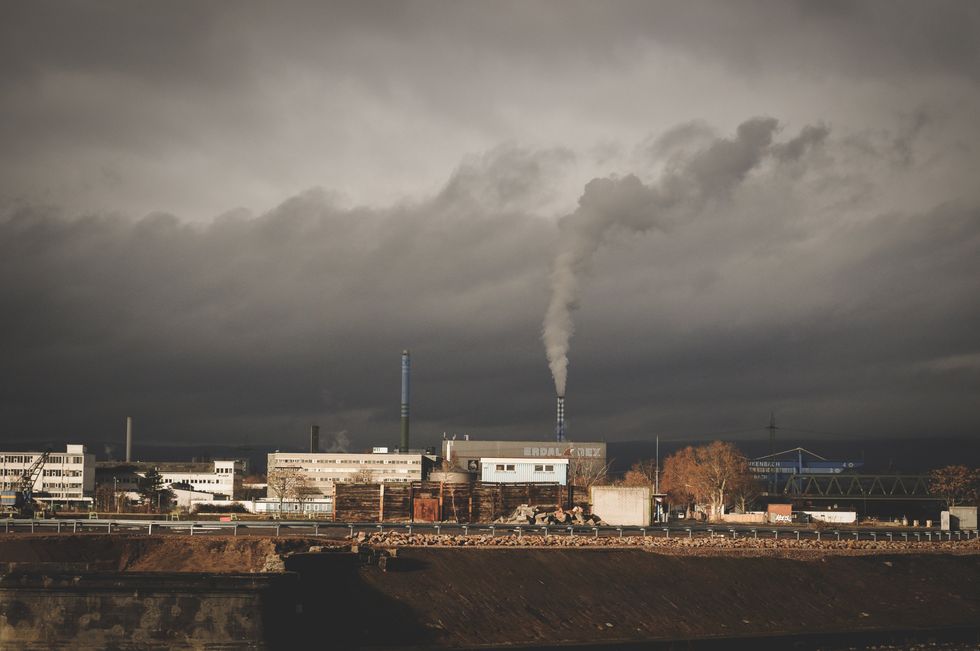Our planet is a delicate place when it comes to the universe, as we have landed right in the sweet spot that is needed for our existence. As we explore more of the universe, we find planets similar to ours, but right now, space travel on that level is too difficult for us to get reckless with our own planet. However, we still do.
While a slight uptick in temperature or sea level may not seem important, it ruins ecosystems all over our planet, and it's not crazy to say that increased emissions have damaged our public health. Rather than finding solutions to our issues and facing facts that are important to human life — not only now but across generations — people shy away from the truth and focus on less important things. I've even done so myself, and I know that I should not. I like politics way more than an average person, but even then, climate change has always been just an issue I was aware of but have not fully cared about.
When I stopped to think about the importance of this, I realized that to me, it should be important. I want to be a biochemical engineer, and a part of that is the creation of alternative, biologically based fuels. In other words, biofuels are fuels based on living organisms, typically plants or microorganisms that are capable of producing substances such as ethanol from sugars. While biofuels alone can never solve our planet's climate issues, it provides a way to minimize emissions by up to 60 percent considering the source and how it's made.
Ethanol may seem familiar, as most gas in the United States is of some amount of ethanol — that amount can go up to 10 percent ethanol. Higher percentages of ethanol cannot be used on many cars, only on fuel flexible vehicles, and the percentage can range from 51 to 83 percent of ethanol.
Ethanol is alcohol made through fermentation, just like alcoholic beverages. While there are some downgrades to using ethanol, the development of ethanol is important, and if it can be more cost effective with less damaging materials. Corn and sugar canes aren't the most effective materials, and ethanol companies along with governments are looking for less harmful materials, such as fast growing grasses or microalgae. I personally wish to study Kudzu and produce ethanol from the sugars present in the plant to make use of the invasive species.
Microalgae are a relatively new source of biofuels and have actually been used in dietary supplements and used for overall health benefits. They are seen as potential sources of biofuel for the amount of sugars and fats that can be produced and then converted into ethanol. So it's obvious that since there are many sources available and in development, many forms of biofuel will become cheaper as time goes on.
However, one must consider the disadvantages of biofuel along with the considerations that need to be made.
Biofuels are less energy dense, so unless the production process is streamlined then perfected, it is hard to say whether it can be cheaper than gasoline itself. This can also be assisted by a carbon tax or a tax credit for biofuels. We had the ability to master fossil fuel extraction, which has reduced the cost, so the same should go for biofuels. Another common issue brought up is land use, and the production of biomass. The argument that is used here is that biofuels will create the need for cleared out land and require more energy to produce than is given.
Again we see the issue of streamlining and perfecting the process, but land use is important to many industries in agriculture, not just farming, so an increase in land use can be due to a variety of factors. Other methods of acquiring ethanol, such as microalgae and cyanobacteria, can be used to decrease this phenomenon.
One of the best benefits from biofuels, other than helping the environment, is the ability to be renewable, unlike fossil fuels. Once we run out of oil, we can rely on biofuel to be there. The oil and coal industries actually get more subsisdies from the government, but it's fighting against the inevitability of coal and oil being rendered economically useless. The future needs biofuels as sustainable energy, and we need to be here to cultivate it.
















